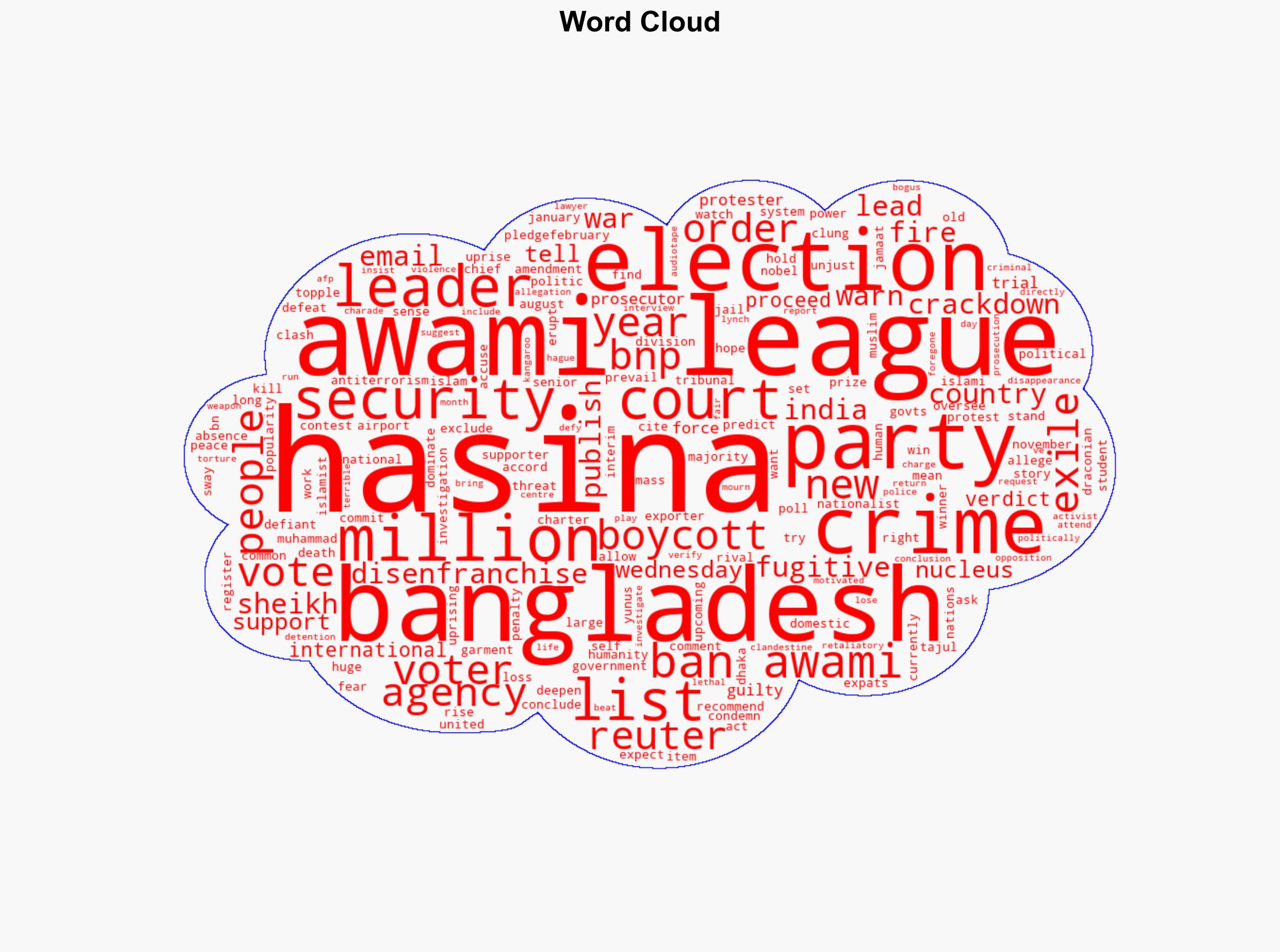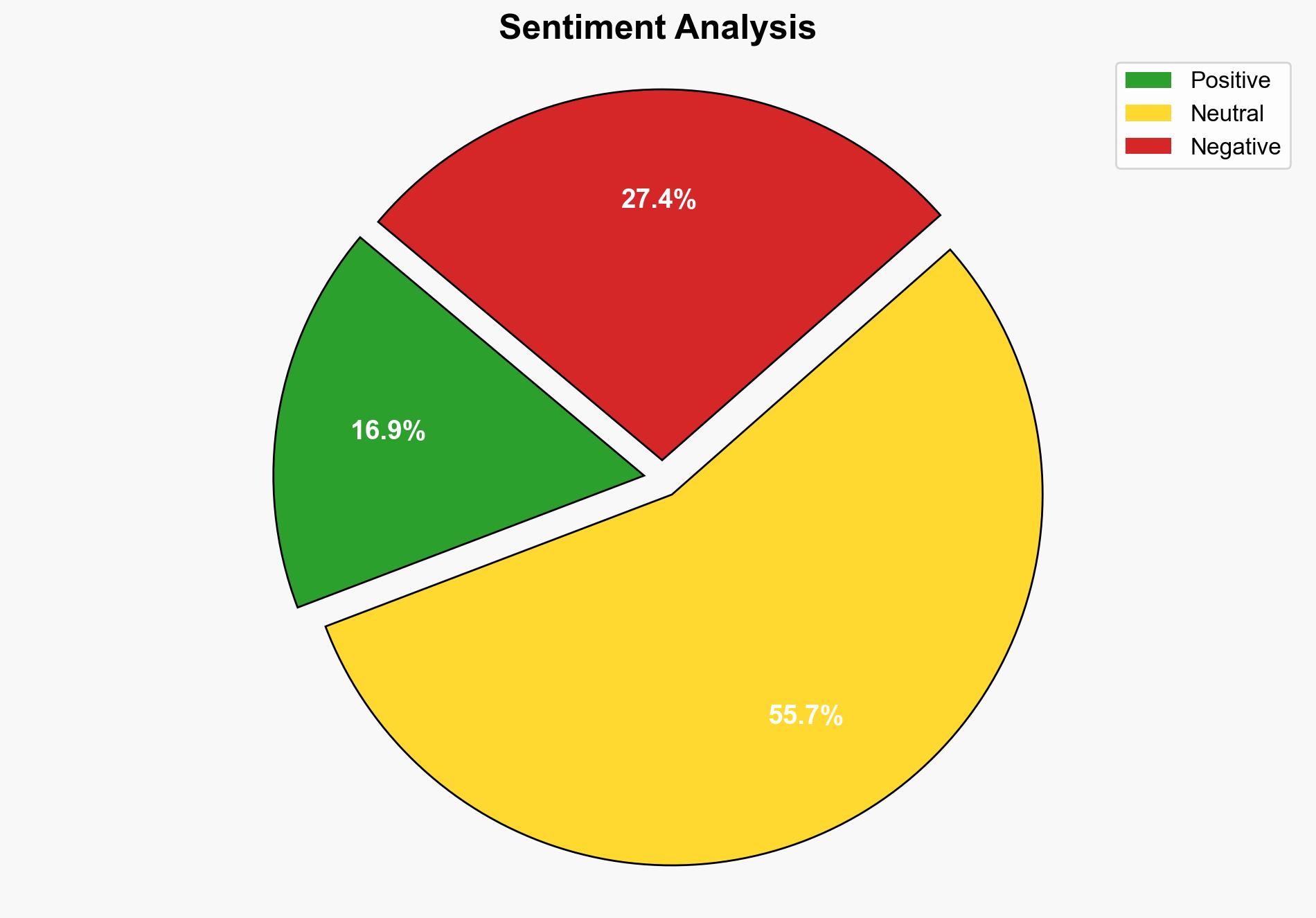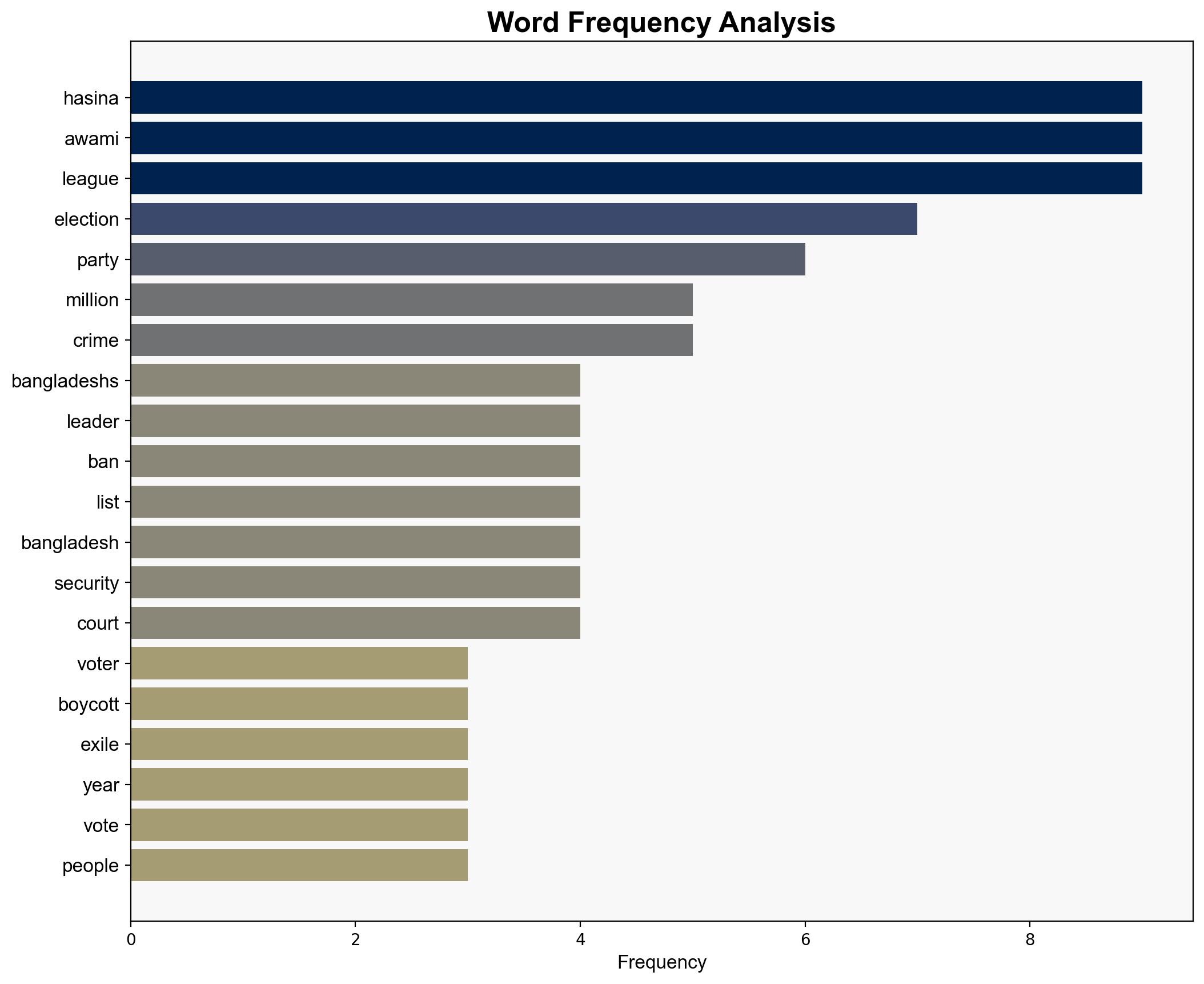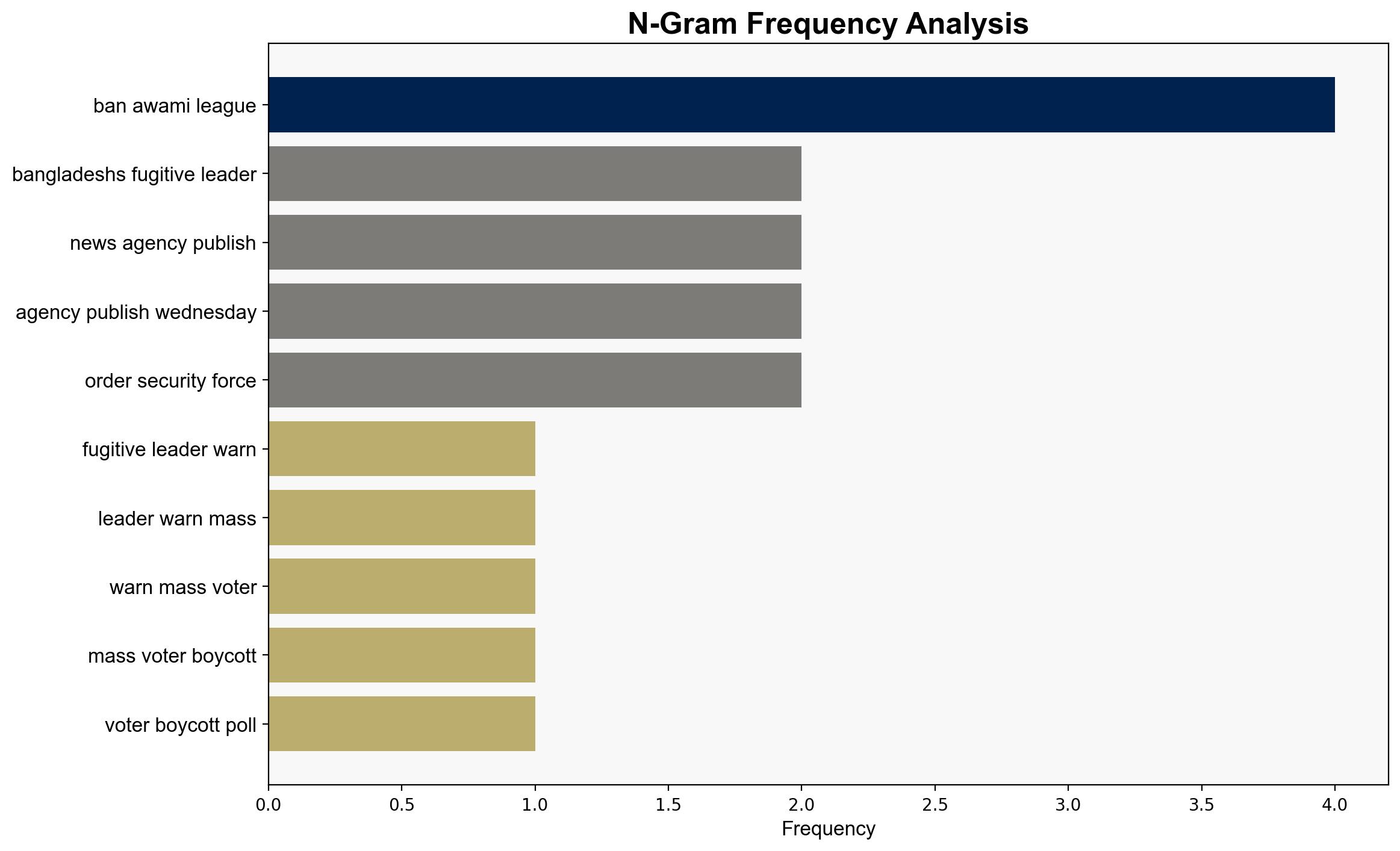Bangladeshs fugitive ex-leader warns of mass voter boycott in 2026 polls – Al Jazeera English
Published on: 2025-10-29
Intelligence Report: Bangladesh’s Fugitive Ex-Leader Warns of Mass Voter Boycott in 2026 Polls – Al Jazeera English
1. BLUF (Bottom Line Up Front)
The most supported hypothesis is that the warning of a mass voter boycott by Bangladesh’s fugitive ex-leader is a strategic maneuver to pressure the current government and international community into allowing the Awami League to participate in the 2026 elections. Confidence level: Moderate. Recommended action: Monitor political developments closely and engage with regional stakeholders to encourage a fair electoral process.
2. Competing Hypotheses
1. **Hypothesis A**: The ex-leader’s warning of a mass voter boycott is a genuine expression of concern over disenfranchisement and aims to mobilize international pressure on the Bangladeshi government to ensure a fair election process.
2. **Hypothesis B**: The warning is a strategic ploy by the ex-leader to regain political leverage and destabilize the current government, potentially leading to increased political unrest and international intervention.
Using Analysis of Competing Hypotheses (ACH), Hypothesis B is better supported due to the historical context of political maneuvering in Bangladesh and the ex-leader’s current legal challenges, which may incentivize a strategy to undermine the current regime.
3. Key Assumptions and Red Flags
– **Assumptions**: It is assumed that the ex-leader has sufficient influence to mobilize a significant voter base. Another assumption is that the international community would respond to such a boycott.
– **Red Flags**: The potential bias in reporting and the lack of independent verification of claims about voter disenfranchisement. The ex-leader’s legal status and past actions may indicate a bias towards self-preservation.
– **Blind Spots**: Limited information on the current government’s internal stability and the potential for internal dissent within the Awami League.
4. Implications and Strategic Risks
– **Political Instability**: A successful boycott could delegitimize the election process, leading to prolonged political instability.
– **Economic Impact**: Political unrest may deter foreign investment and disrupt economic activities, particularly in key sectors like garment exports.
– **Geopolitical Tensions**: Increased international scrutiny and potential intervention could strain Bangladesh’s diplomatic relations with neighboring countries and global powers.
5. Recommendations and Outlook
- Engage with regional and international organizations to facilitate dialogue between political factions in Bangladesh.
- Encourage transparency in the electoral process to mitigate the risk of disenfranchisement claims.
- Scenario Projections:
- Best Case: Peaceful resolution with all parties participating in the election, leading to political stability.
- Worst Case: Escalation of political violence and international sanctions, severely impacting Bangladesh’s economy.
- Most Likely: Continued political tension with sporadic unrest, but eventual participation of key parties in the election.
6. Key Individuals and Entities
– Sheikh Hasina (Fugitive ex-leader)
– Awami League (Political party)
– Bangladesh Nationalist Party (BNP)
– United Nations (International body)
– Muhammad Yunus (Nobel Peace Prize winner)
7. Thematic Tags
national security threats, political instability, electoral integrity, regional focus




